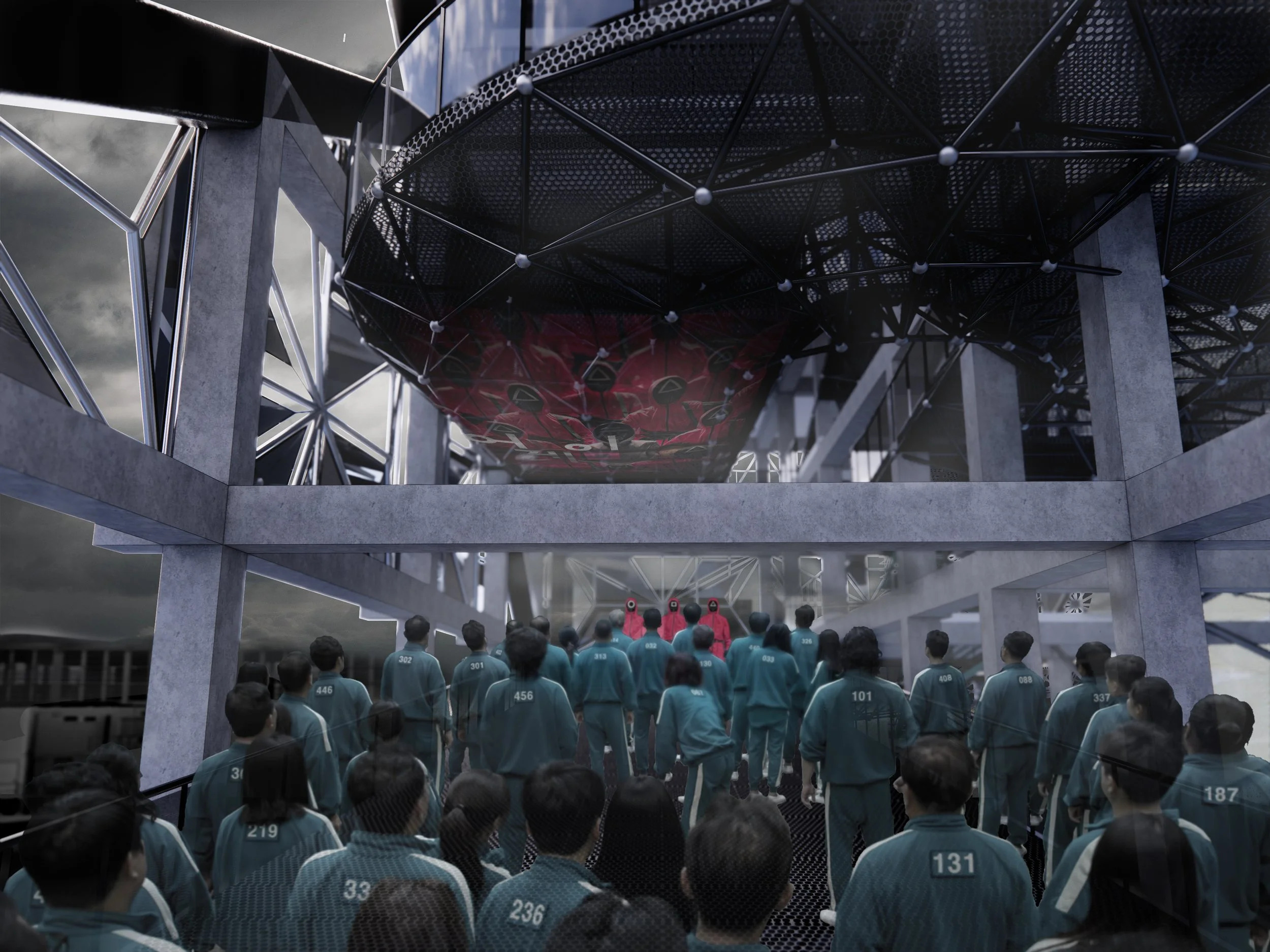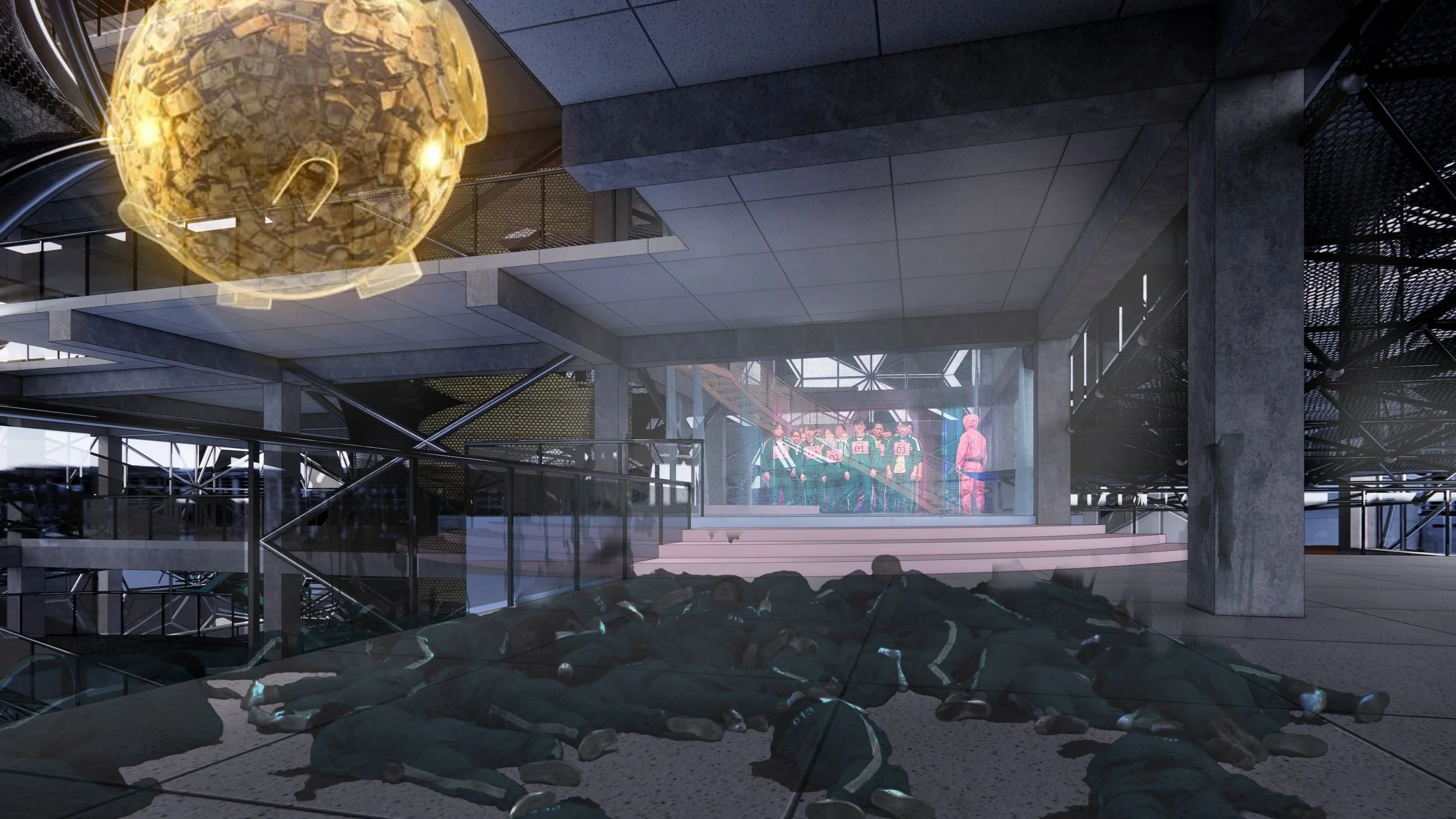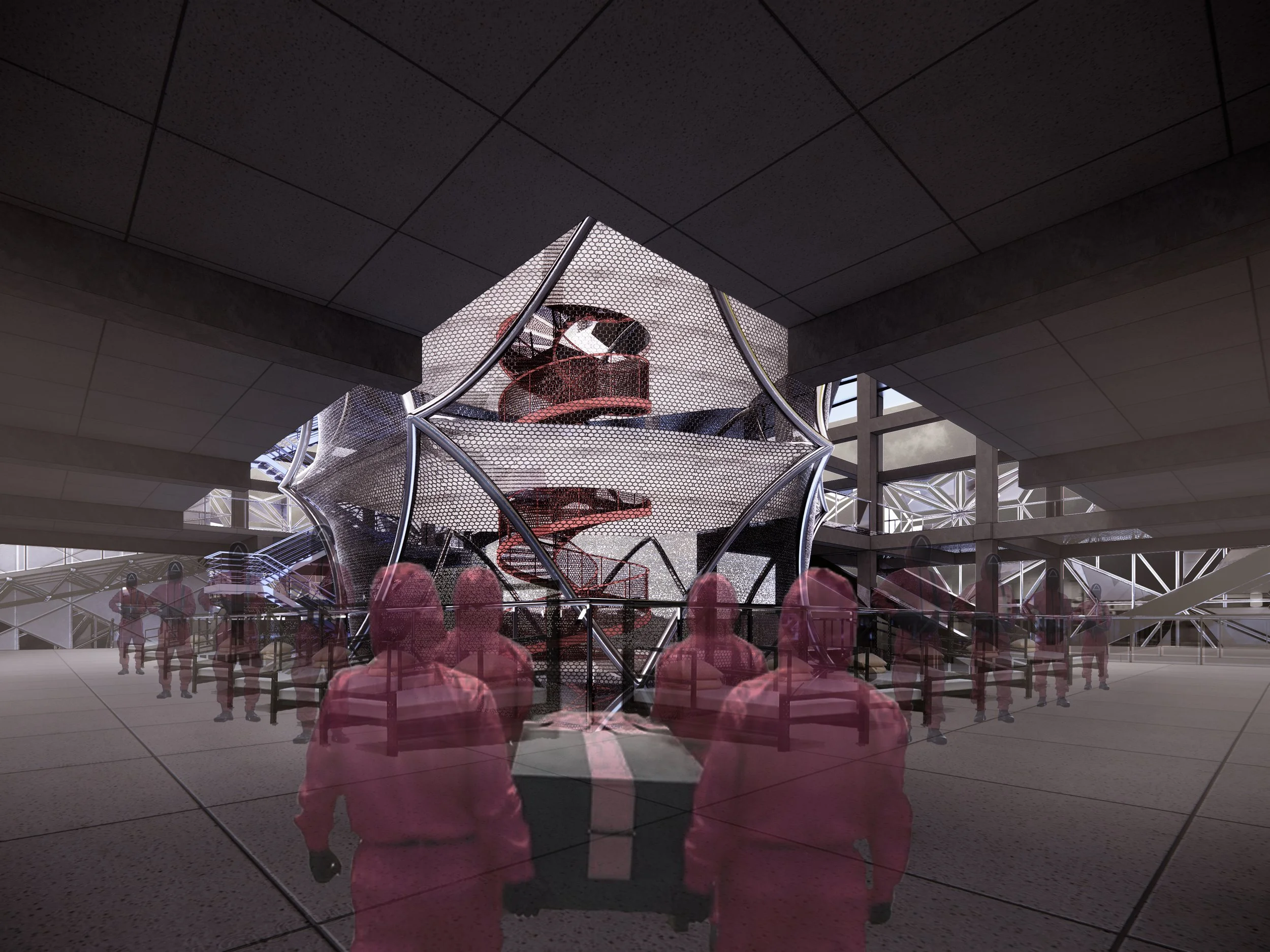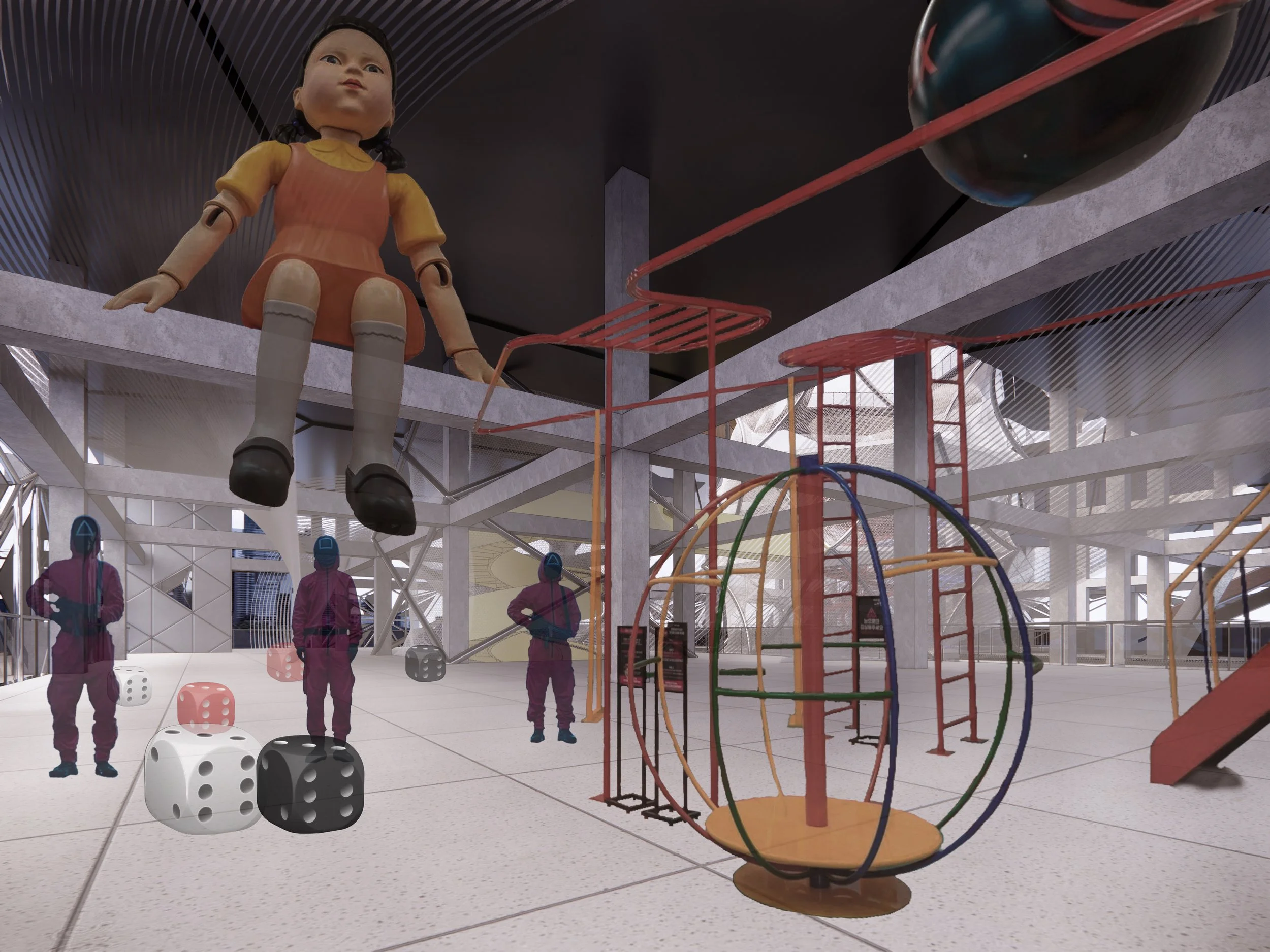
Do you know what people who have no money have in common with people who have too much money? Living is no fun for them.
— Squid Game
PETARD - Modern Agora: Mies en Scene of Occupy Movements
> Project Type: Academic
> Location: Exarcheia, Athens, Greece
> Instructor: Fazin Lotfi-Jam
> Year: 2022
> Role: Individual Work
Sense of anti-rich and anti-elitism is pervasive worldwide due to the Mathew effect and income disparity coming with the globalization of the market economy. "The 99%" are paying the price for the mistakes of "the top 1%", which is the consensus among the underclass. Thereby, Occupy Movement emerges in the second decade of the 21st Century as the response to all this ethos.
From the Occupy Wall Street in New York City to the Umbrella Movement in Hongkong and, most recently, Black Lives Matter worldwide, Occupy Movements proved its vitality in scope, duration, topicality and widespread. Compared with the traditional demonstration, it shows new traits pertaining to longer duration, no single appeal and leaderless. In Occupy Movement, participants gathered to attempt tribal life in public space without government and leadership. As dissatisfaction towards society and appeals tend to be versatile, the event tends to assemble various negative social emotions. Their purpose is to trade for language power by exposing their private sphere to the public.
From the architecture perspective, long-term occupying public space would inevitably backfire on the regular social order of life by paralyzing urban infrastructure. Breeding of crime in chaos would further aggravate the hostility between protestors and the police, then finally shows on Trump's Twitter, "When the looting starts, shooting starts." As Voltaire once said: "I disapprove of what you say, but I will defend to the death your right to say it." A new type of space to accommodate occupy movement is necessary to let the weak have their voice while defending their decency as humans. As space is the container of human programmes, architects' duty is to provide solutions for newly emerging social demands. In this process, we choose to represent elitism, so magnificent parliament capitals and assemblies are erected to ode for the language power of the upper class. Nevertheless, neither should we forget to show mercy towards normals.
In the 6th Century B.C., ancient Greek city-states set Agora as the assembly for citizens to realize direct democracy. Choosing the site at Athen is to find the loose connection with the glory of the democratic system. Sarcastically, the refugee crisis and government-debt crisis hoist this city with its own petard, so a building for the poor is like a payback. In this project, the sarcasm goes to the extreme by adding the scenes of Squid Game. If the world keeps the same, whether a building can change anything?





